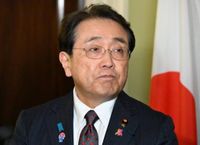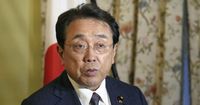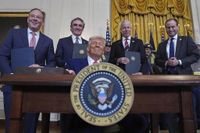Steel exports from Japan and South Korea to the United States experienced significant declines in March 2025, following the imposition of hefty tariffs by the U.S. government. Japan saw a drop of 16.6% in its steel exports, while South Korea faced an even steeper decline of 24% compared to the same period last year. This downturn in trade can be attributed to President Donald Trump's decision to implement a 25% tariff on steel imports, which took effect on March 12. The tariffs are part of Trump's broader strategy aimed at addressing the chronic trade imbalances that the U.S. has been grappling with.
While the intent behind these tariffs is to bolster American manufacturing by making imported steel more expensive, the unilateral nature of these actions has sparked tensions with key trading partners. Japan and South Korea, both close allies of the United States, are now facing a trade environment that threatens to disrupt global supply chains and slow down cross-border trade.
In a related development, tariff negotiations between Japan and the United States commenced on April 16, 2025, in Washington. Both sides expressed goodwill during the discussions, although little concrete progress was achieved. The only notable outcome was an agreement to reconvene for further talks. According to Ryosei Akazawa, Japan's chief tariff negotiator, the topic of exchange rates was notably absent from the discussions. However, defense matters might have been included in the agenda.
The value of the yen has emerged as a contentious issue in recent weeks, with U.S. officials suggesting that the Japanese currency may be undervalued. This situation has added another layer of complexity to the trade discussions. Furthermore, President Trump has voiced his desire for Japan to contribute more financially for hosting American troops stationed in the country.
As these negotiations unfold, the economic implications of the tariffs are becoming increasingly clear. Experts warn that the tariffs could have far-reaching effects not just for Japan and South Korea, but for the global economy at large. The decline in steel exports is likely to ripple through various sectors, impacting everything from construction to automotive manufacturing.
In the wake of the tariffs, both Japan and South Korea are reevaluating their trade strategies. The steel industry, which is vital to both nations' economies, is now under pressure to adapt to the new realities of international trade. Industry analysts are closely monitoring how these tariffs will affect production levels and employment in the steel sector.
Moreover, the situation raises questions about the long-term sustainability of the U.S. approach to trade. While the tariffs may provide a temporary boost to domestic steel producers, the broader implications could lead to retaliation from Japan and South Korea, further complicating trade relations. There is a growing concern that such retaliatory measures could escalate into a trade war, which would have detrimental effects on global markets.
Looking ahead, the upcoming meetings between U.S. and Japanese officials will be crucial in determining the future of trade relations. Both sides will need to navigate the complexities of tariffs, currency values, and defense spending to reach a mutually beneficial agreement. As the global economy becomes increasingly interconnected, the stakes are high for all parties involved.
In summary, the imposition of tariffs by the United States has created significant challenges for Japan and South Korea, leading to sharp declines in steel exports. The ongoing tariff negotiations highlight the delicate balance that must be struck to maintain healthy trade relations while addressing domestic economic concerns. As these discussions progress, the impact of these tariffs will continue to be felt across various sectors, underscoring the importance of collaboration and open dialogue in international trade.







